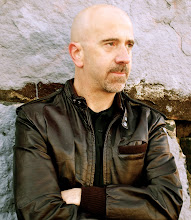That seems like a pretty cut-and-dried statement, but as with everything else in life, it seems there are degrees of bestsellerdom. The top of the heap, maybe, would be occupying a spot on the New York Times bestseller lists.
I've never done that. In all likelihood, never will.
At the bottom of the heap, maybe, would be occupying a spot on the list of bestselling titles of a tiny publisher nobody has ever heard of.
I've never done that, either, and have no intention of ever doing so.
So in the universe of "bestselling" authors, I'm somewhere in between the two extremes. But I still get goosebumps when I think about the fact that a year ago today, my thriller, THE LONELY MILE, blasted into Amazon's Top 100 overall paid bestseller list, eventually peaking at #21.
I wrote the 21st bestselling book at Amazon out of the millions of books available at the world's most prolific bookselling site.
I don't say this because I'm boasting. I'm not. It's actually just the opposite - I still have a hard time believing the events of last February actually happened, despite the fact I can remember them like they took place just last week. I'll never forget them.
The book had been released the previous summer by StoneHouse Ink, and despite our best efforts, sales had languished at around thirty a month, give or take. Other authors, I'm sure, can relate. There are a lot of books out there, all seeking readers. Most of those books will never find any.
In mid-January I asked Aaron Patterson at StoneHouse about the possibility of taking advantage of Amazon's new Kindle Select Program and making the book free for a couple of days. I thought we might give away a couple of hundred copies and take advantage of the resulting exposure, maybe selling a few extra copies when we started charging again for the book. What did we have to lose?
THE LONELY MILE went free on February 2 and within hours had zoomed to Number One on the free list, where it stayed for nearly three full days. By the time we ended the free promotion, we had given away 46,000 copies and gotten invaluable exposure.
On February 5, one year ago today, THE LONELY MILE returned to its regular price of $2.99 and began selling at an incredible rate. By the end of the day we had broken into the Top 100 paid list at Amazon. Over the course of the next three days we sold eight thousand copies, a rate that would probably disappoint Lee Child but which completely flabbergasted me.
On the afternoon of February 7, which was a Thursday and the third day of incredible sales, I made the comment to my wife that maybe this was really happening, that maybe we had crossed some invisible threshold and my name was finally going to become recognizable, a key aspect when it comes to selling books.
The entire last three days I had been holding my breath, waiting for the other shoe to drop and for sales to dry up. They never did. Then I made that comment to my wife, and right on cue, sales began slipping.
It took a few more days to drop out of the Top 100, and for the entire month of February we ended up with over 12,000 sales, my best sales month ever by far and one I'll never forget.
A year later, THE LONELY MILE still sells the most consistently well of all my titles, and that's cool. It's a book I'm extremely proud of and a damned good story, if I do say so myself.
















